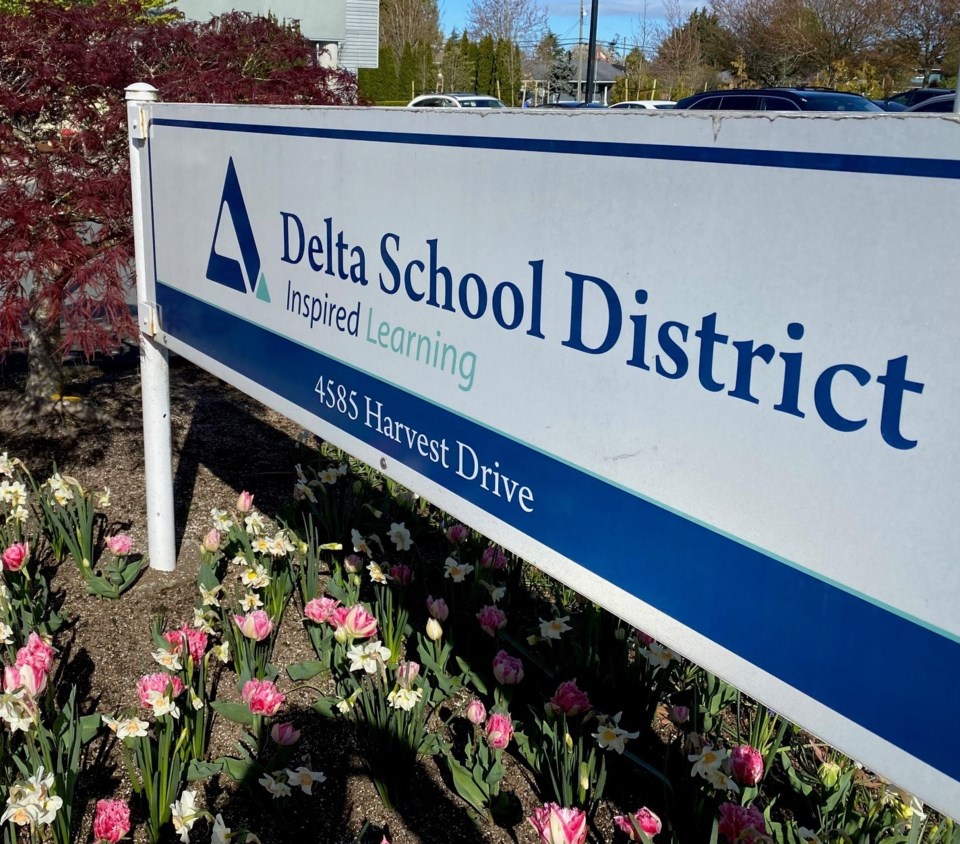Inflation has put the squeeze on the Delta School District as it faces a $1.388 million operating deficit for 2023/24.
The school board this week released its draft budget which proposes a series of balancing measures done in a strategic and sustainable way and “ensuring that any proposed reductions have the least impact on students.”
Anticipating a decrease in enrollment of 89 full-time enrolled students next year, the district says although the per pupil funding from the province is up, and this year’s operating grant is the highest received by the district, it has not addressed the full impact of inflation and other costs, including increases to EI, WorkSafe, technology costs, benefit premium rates, illness and overall benefit rate increases.
In a media briefing prior to the draft budget’s release, Secretary Treasurer Nicola Christ said inflation in many different areas hit the district particularly hard, significantly impacting various aspects within important budget items.
“While there might have been small increases in the past, some of these costs this year have been in the hundreds of thousands of dollars…costs that you simply can’t avoid that have had an impact on the budget. We can’t not put them in the budget and we’re experiencing them, regardless,” she said.
The balancing measures include, among other things, a decrease in administration costs and supplies, a reduction of one unfilled teacher FTE position, using International Student Program revenue and “efficiencies” in the Learning Support Teacher program, although the student/staff ratios will remain higher than required.
Other measures include phasing out program areas that have limited impact on student learning, including an after-school program, while unintended hiring delays are expected to result in some of the budget allocated to salaries remaining unspent.
Meanwhile, because of the new Feeding Futures Fund from the provincial government, there is a saving available from the re-allocation of the district’s long-standing Operating Fund food program.
Christ noted that the outlook for the International Student Program remains positive with enrollment returning to pre-pandemic levels, but the revenue generated by the program is not as high as before and it can be a volatile revenue stream.
Christ explained that after years of reductions, there was very little flexibility remaining in the budget. In a departure from recent years, departments were asked to build a budget from scratch rather than the usual approach of trimming their current budget, an approach known as zero-based budgeting. It was aimed at ensuring that the most strategic and important initiatives are included.
The district also says it revised its budget public consultation process with the aim of increasing engagement and gathering more feedback in what Delta’s priorities should be. The feedback was taken into consideration while adopting the new approach to structuring the budget to address ongoing and emerging cost pressures.
The public is invited to a draft budget input meeting on Tuesday, April 23 at 7:30 p.m. at the school board’s offices, 4585 Harvest Dr. The public is also invited to submit comments via a survey or by email. For more information on the draft budget or how to provide feedback, check deltasd.bc.ca.




